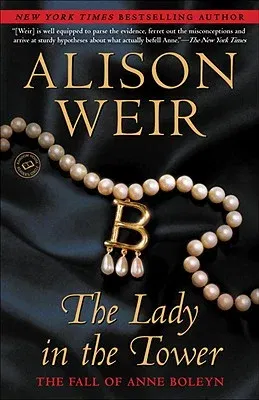Nearly five hundred years after her violent death, Anne Boleyn, second
wife to Henry VIII, remains one of the world's most fascinating,
controversial, and tragic heroines. Now acclaimed historian and
bestselling author Alison Weir has drawn on myriad sources from the
Tudor era to give us the first book that examines, in unprecedented
depth, the gripping, dark, and chilling story of Anne Boleyn's final
days.
The tempestuous love affair between Henry VIII and Anne Boleyn
scandalized Christendom and altered forever the religious landscape of
England. Anne's ascent from private gentlewoman to queen was
astonishing, but equally compelling was her shockingly swift downfall.
Charged with high treason and imprisoned in the Tower of London in May
1536, Anne met her terrible end all the while protesting her innocence.
There remains, however, much mystery surrounding the queen's arrest and
the events leading up to it: Were charges against her fabricated because
she stood in the way of Henry VIII making a third marriage and siring an
heir, or was she the victim of a more complex plot fueled by court
politics and deadly rivalry?
The Lady in the Tower examines in engrossing detail the motives and
intrigues of those who helped to seal the queen's fate. Weir unravels
the tragic tale of Anne's fall, from her miscarriage of the son who
would have saved her to the horrors of her incarceration and that final,
dramatic scene on the scaffold. What emerges is an extraordinary
portrayal of a woman of great courage whose enemies were bent on utterly
destroying her, and who was tested to the extreme by the terrible plight
in which she found herself.
Richly researched and utterly captivating, The Lady in the Tower
presents the full array of evidence of Anne Boleyn's guilt--or
innocence. Only in Alison Weir's capable hands can readers learn the
truth about the fate of one of the most influential and important women
in English history.
BONUS: This edition contains a The Lady in the Tower discussion guide
and an excerpt from Alison Weir's Mary Boleyn.

